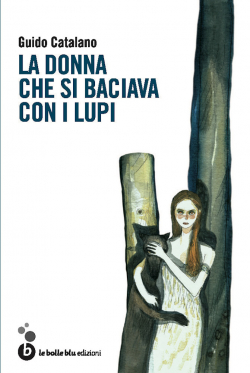Editorial
by Francesca Del Moro
Sometimes the book we hold in our hands unleashes a sequence of thoughts, inviting us to a sort of dialogue. Inspired by reading, we end up writing on its pages. So, the books we buy at yard sales or thrift stores often give us the chance to slip in the mind of some ancient reader who left on the side of the page a thought, a comment, a doubt or even a question. Or a poem. Perhaps a one concerning that book, or books in general, suggested by the same pleasure and gratitude felt while reading by those who love it. These four poets do something similar, telling, through their different styles, their love for books. In the poem by Vera D’Atri, reaching the shelf with a hand is enough to revive the voices of great poets in a room soaked with inner torment; in the verses by Stefano Pradel the same loneliness finds a shelter and some dreams in a paper house; Roberto Parmeggiani creates a lively seduction game between the written word and the reader, while Maurizio Landini reflects on the fearsome power of books as depositaries of freedom and of the lessons of history.
Human Remains
by Maurizio Landini
Then they tried
to read the ashes
as if they were words
and they misread history.
Song for dancers: third fragment
by Stefano Pradel
A home BUILT
of ink and paper
painted with silence
love and nothing.
A home built
at the edge of the wind,
where ash
looked less dark
and time couldn’t nothing with it.
The rain says: let it go.
by Vera D’Atri
The rain says: let it go.
I let it go.
But inside I keep cold exclamations,
cold screams as those coming from a wood of executed.
I look for the next. I go to page 69.
Mayakovsky says: “the bull of days is cracked”.
Whitman: “mine is no callous shell”.
Eliot whispers: “…but weave, weave the sunlight in your hair…”.
The house stagnates in bed.
It hasn’t been sleeping so long. It stays between this world
and the other waiting for the peace of heart.
It felt victory vanishing and stays with its arms crossed.
It disapproves these mediocre days
while it doesn’t care about the pressing rhythm,
rolling lightly on each other, the time of flowers
and the one of graveyards.
I go out.
by Roberto Parmeggiani
I go out.
I stick out, little by little.
I risk contact.
Refusal.
Wild passion.
I tell about a path,
I set a goal,
I suspend suspicion,
I offer a point of view.
We only meet in passing,
between the lines, around corners
a glance,
red cheeks,
heart, hearth, hearth,
thought,
a terrace over the sea,
in that solitary alley.
Complicated relationship,
on again, off again,
we make up,
we will never break up.
Me word, you reader.
La donna che si baciava con i lupi
by Guido Catalano
“rarely a beautiful girl is also fireproof
it is therefore useless to look for her in the sun.”
Despite those who look at it with suspicion, believing it is only made of heartache vented through unlikely rhyming words in the sunset, poetry can do everything: question the human condition, irritate, move, make people think, dream, cry, and… sure not everyone knows it… but poetry can even make people laugh! So, besides moving us and making us think, etcetera, La donna che si baciava con i lupi (The woman who kissed the wolves) also makes us laugh. The title is just the first of the thousand twisted references (it’s up to you to guess the right ones) you can find in this book. Poised between beat generation poets and cabaret, Guido Catalano drags us in a series of surreal situations and absurd dialogues, where you can nevertheless feel something familiar that makes you think that one is exactly the way things would go, if only we tore down the wall of decency and conventions. One by one, the poet put all the clichés of love language under the pitiless microscope of irony: he is astonished by the lovers in the style of Riccardo Cocciante, picking stars for their sweethearts unconcerned about burns; he sweats a mare named Beatrice and falls in love with her; he talks with the personifications of Sadness and Boredom (as Baudelaire did before him), and rattles off love poems in pseudo-French – because, as everyone knows, French is the language of amour. And from love, he passes to other universal themes, such as Death, poetry, and even God, always reinterpreted in the light of the poetics of the author, who entrusts his manifesto to one of his imaginary mentors, Ludovico Einaudi: “Why must you always say things speaking bullshit?”.
La donna che si baciava con i lupi
Guido Catalano
le bolle blu edizioni

